
A Catalog Of Small Machines — Page ii


A Catalog Of Small Machines — Page ii
A Catalog Of Small Machines — Page iv
Volume V: Winter 2025
Editor
: Mark MacAllister
Cover Photography: Katrin Talbot
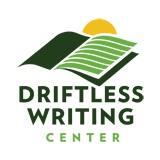
A Catalog Of Small Machines — Page v
A Catalog Of Small Machines — Page vi
A poem is a small (or large) machine made of words.
William Carlos Williams
A Catalog Of Small Machines — Page vii
A Catalog Of Small Machines — Page viii
A Catalog Of Small Machines — Page ix
A Catalog Of Small Machines — Page x
A Catalog Of Small Machines — Page xi
Maureen Adams
Maureen Adams — Instill/Distill after changing her diaper with quiet talking I rub her from neck to toes several times to relax then we push the mobile set in motion silent twirling like the helicopter that we watched from the backyard
I whisper
I love you You’re my sweetheart Have a good rest and lay her down gently See you later turn off the light and close the door
most of the time she drifts right off without a whimper trusting the process assured that I will return to greet and gather her when she wakes
a hard-won battle getting this infant to nap with ease in her own room
and just when the routine solidifies the moving pod arrives and the mobile is taken down and packed so we mimic the spinning with our hands
then the pack-n-play subs in for the crib she’s never been a fan of its thinner mattress and smaller space
and the dresser with changing table goes leaving just a towel and supplies on the floor
yet we persevere for two weeks more in an austere room on the remnants of routine
it reminds me of the BINGO song a letter replaced with a clap on each successive chorus we were clapping our hearts out at the end
A Catalog Of Small Machines — Page 2
Jane Barnard
Jane Barnard — Foil the Feminist At Your Peril
I hang my sorry head and confess: I can’t fix anything, failed feminist that I am. Gloria Steinem, forgive me.
Behold the burnt-out fridge bulb. Mind you, this has its advantages. I can't see the aged, overripe, expired stuff stashed on the back shelf. So I strut into Ace Hardware, and proudly purchase a new fridge bulb: the right voltage, ohms, RPMs—whatever.
I proceed to twist my own aged, overripe, but not-yet-expired body into an impossible yoga position, aiming for the the light socket entombed where not even a long-armed orangutan from Borneo could reach. I clench my teeth. Of course I can, Gloria.
I contort my spine, screw in the bulb, and voila: nothing. All is in darkness, formless and void. And what is that smell? Gorgonzola turning green? A shriveled mummified avocado? A Yukon Gold potato stuck back there since the Civil War, sprouting nasty little Tater Tots?
I jiggle the bulb in case there’s a short. I command, “Let there be light.” Louder. “Let There Be Saint Rosie the Riveter, swooping down from her heavenly workbench.” Still dark. Deflated, I whimper, “Let there be an aging but still fierce feminist who occasionally yearns to see Prince Charming swagger in with a tool belt.”
Oh the hell with it. I grab the Gorgonzola, hack off the mold, slather it on a Triscuit and mmmmmmmmmm-mmm—forget Adam and Evc. On the last day God Created Cheese.
Today the fridge is still dark. I'm used to it. Frankly, illuminated leftovers, like men in tights, are greatly overrated.
*
Picture my younger self, decked out in a navy blue power blazer with an orange polyester scarf tied in a bow. At the end of the long polished cherry table in the corporate boardroom, I was presenting a new IT project proposal. My hands trembled, my palms were sweaty, my Secret Roll-on was failing me. My 5’8’ frame shrunk into a miniature garden troll in that room full of senior male executives with shiny ties and get-it-over-with eyes. They dismissed me with a cursory hand-wave before I even finished the last slide. I slunk back to my cubicle, and stuffed myself with my shame-drug of choice in those days, two packages of Little Debbie Nutty Buddies. *
Today women in senior management roles still number less than 25%. I dumped the polyester blazer but kept my dog-eared NOW card.
I’m glaring at my belligerent, broken vacuum cleaner. As I steer the Hulk-Hogan-of a-beast across the living room carpet, I hear a death-rattle. Uh-oh. Hulk is KO’ed. I don’t see any of those telltale carpet pathways. Next I throw down my gauntlet, a test crumb. It’s not sucked up. I mutter to myself Fine, Saint Rosie the Riveter, You who promised to leave me never, I’m bereft, and You withhold when I'm most in need? Fine. I will fix my own vacuum. And then I say to myself those words which should never be uttered in my lifetime, How Hard Can It Be?
There are six screws on the faceplate that require a Phillips screwdriver. Gird thou my loins Gloria. I open the Hoover vacuum and Eureka—there lay the culprit, a broken belt, hanging its pitiful head.
Back at Ace Hardware. I sidle up nonchalantly to a postpubescent sales clerk. Trying to sound casual, I say, "I need a size 1A belt for a Hoover series 2y." No response. I announce, louder, "I’m fixing my vacuum." He barely turns around, just points and says, “Aisle 5." I want to grab his skinny freckled arm and say, “ Listen up you dolt. Does your grandma fix her own appliances?”
I stretch the new rubber belt around the one of the thingies, replace the faceplate, and voila: the vacuum cleaner works! Hulk’s back in the ring! I gun the engine, pumping my fist in the air. Cracker crumbs, do your worst. “I am woman hear me roar.”
So now do I get a seat at the executive boardroom table instead of vacuuming under it?
A version of this piece was previously published in Moss Piglet, August 2024
Adam Lee Becker
Adam Lee Becker — No More
Weary they grow when day turns to night. Their Dreams they have died which once they took flight. They have toiled and labored yet brought to shame. They are many yet have no name.
Their sorrows flow like a river with no end. They lost their hope thine only friend. The sky, it remains, the sun still shines. Gives light to their tombs, their fallen shrines.
An army surrounds them, their mind at war. They will be conquered; they strive no more. The fields are marked where the dead they lay. They have cried out for mercy, no longer they pray.
What have we here now? What do we find?
Life can be cruel, so cold and unkind. But life can be resurrected, the dead come to life. To shake off the ashes, to brush off the strife.
Look to the light and grab hold of hope. Arise from your slumber, take hold of the rope. Dreams can live again where once they were dead. Look to the heavens, raise up your head.
You are greater than broken, greater than despair. You still have a future, and your heart will repair. When life tries to break you, let out a great cry. No more will life conquer, no more will I die! A Catalog Of Small Machines — Page 5
Tanja Birke
Tanja Birke — fragile souls
we walk around this tiny planet pretending to be sane moving so fast, we leave fragments of our souls behind
believing in this brilliant vision this fairy tale of evil and woe as if loons do not sing at night as if clouds are not turning the sun into gold as if the gaze of a stranger’s eyes into yours does not mean a thing
we forget how close we are to one another how close we are to the answer to our prayer
our pleading mouths keep begging for more food not even tasting the salt upon our lips and our arms reach out toward each other while we turn away in fear
we miss it all
as we hurry along, tickets in hand ready to disappear into the darkness hoping for a moment’s peace
but we are made of glass our fragile souls
there is beauty in our fragility it is why we take such care not to brush up against one another and when we do sometimes we shatter into a thousand shards of broken glass
and each tiny shard is a part of us that we never knew until this day
Sue Blaustein
Sue Blaustein — You Can't Stay Clean
Look! a clean shadow, shaped like a little club! Cast by a deck screw onto a splintery pallet. The screw isn’t flush now, if it ever was. Strong sun meets it and forms a mallet. A shadow tool without an arm to wield it... A puppet play, stalled before it starts... I’ll add a character — a retiring hermit. I want that role! Let me shrink and play the part. I love tales with hidden huts and sages! My urge to quit a life of noise is swelling. When peoples’ proudest moments are their rages, I’ll slip into grass and milkweed to make a dwelling.
But it’s prideful to withdraw and live on alms! When your donors go to work and dirty their palms.
same.
Deb Bushy
Deb Bushy — same. Coming then going. Bitter. Broken.
Insecure and taken.
Sharing and staring. Hopes. Dreams.
We might have cured the ugliness unseen.
Lifted and gifted. Above.
Beyond. The limits of imagination.
With and/or without. Never a doubt. Nobody telling you. They only lured you.
Listen and hear. Healthy. Wise.
Choices are sometimes disguised.
Courageously and timidly. You walked with me.
Solitary. Lovingly. You healed my wounds safely.
Twin and enemy energy flames. Eat with me.
Share my table. Caring not to dismantle. Hope in the making.
Stay and then leave. Thickening and thinning of a bond. Unfortunate that we got caught.
Truth and dare. Days of glory.
Nights of terror. Good stuff does not last forever. I ask and I say. Repeat after me. Myself. Why such a heavy burden? Heaviness causing so many to leave.
Can we commiserate? When we just procrastinate. We can see, hear, breathe, speak and feel--------------Another’s same. A Catalog Of Small Machines — Page 9
After Boarding Our Quarter Horse on the Way to Find Our Fortune, We Fell Asleep In a Suburban Garage, and Remembered Tatsuji Miyoushi’s Horses in His “Great Aso”
DeWitt Clinton
DeWitt Clinton — After Boarding Our Quarter Horse... Sadly, no horses graze on the front lawn even it is pouring down, but once we boarded our horse in a suburban garage, though that did not go as we had hoped for we did not bring hay along with us, so the hoof stomping was so alarming that before we knew what was next, the rain poured and poured, we wondered if we would all float away, riding luckily on the back of our sweet mare sired out of Man of War long before we found Bertha Butt. Somehow our mare found a patch of the sweetest grass, and though we do not know the neighbors we did not know what all the screaming was about, as our gentle quarter horse was grazing, then leaving such a steamy pile on the so lush green grass manicured we’re sure even if the rain left such a dewy scent. We were migrating to a place we hoped would offer something some might call fortune, though that never happened, but were so content leading our beautiful mare out of the sweet grass some might think so perfect, so sweet, just before rain returned so heavily, with such big globs.
Lucinda Guard Crofton
Lucinda Guard Crofton — House Rules
Don’t interrupt your mother when she’s reading.
Don’t disturb your father when he’s resting.
No television allowed in this house.
If you can reach it, you can read it.
If you can dream it, you can do it.
Don’t talk back.
No sore winners allowed.
It’s ok to be a sore loser.
Don’t walk like a baseball player.
Pick up your feet when you go upstairs.
Don’t swing on the doors playing Keep Off the Floor.
Middle sisters share a room.
Girls wear dresses to school.
Boys take out the garbage.
Don’t play with the laundry chute.
Do your own laundry as soon as you can reach the dials on the washing machine.
Don’t say “I’m bored” — there’s the ironing board and a pile of clothes.
Save your allowance.
Buy it yourself.
If you want something, glue Green Stamps into the book.
Come inside when the streetlights turn on.
Always carry a dime in your pocket to call home.
Don’t spend your silver dollar from Grandpa on candy.
A chocolate bar is never an emergency.
Flip a coin to see who sets and who clears.
Cereal is perfectly acceptable for suppertime.
Milk poured over popcorn is better than any cereal.
Don’t spill the milk.
No elbows on the table.
Anyone who shows up at dinnertime is always welcome. Put a tablecloth on for visitors.
Only interesting topics allowed at the dining room table.
Taste everything.
No pop allowed, except for birthday punch, or if you’re really sick.
Coffee is only for grown-ups.
No one cares if you sip the sugary black nectar left in the cup.
Never drink from a half-empty water glass (it might not be water).
When your parents are sleeping is the best time to ask if you can keep a pet.
Don’t tell anyone your father sleeps on the couch.
You can stay up late to watch kittens be born.
á Paula Dil
Paula Dáil — Red Anemones
I come from a small family. Knowing about my ancestors never interested me because, as far as I could tell, there weren’t that many of them. Then, one boring Sunday afternoon during the covid pandemic, I did a little internet ancestor sleuthing.
Working from sparse information my mother occasionally revealed, I was astonished to discover my maternal great-grandmother, Bertha Michael, had emigrated to America early in the last century, passing through Ellis Island ten days after leaving Bremerhaven, Germany. According to the ship’s manifest, she traveled second class rather than steerage, which suggests she was not a poor immigrant escaping a pogrom to seek a better life in America; instead, she came for some other reason, perhaps one involving a man, and love. Mail order brides were not uncommon among Jews emigrating to America during this time.
I never knew Bertha. I never saw a picture of her, or of her only child, the daughter who became my grandmother. I’ve never even heard either of them mentioned by name. Yet what I discovered about Bertha was so captivating it compelled me to keep searching.
Ultimately, I learned that Michael is derived from Mikha'el, a Hebrew surname. This led to discovering that four hundred forty-six records of individuals bearing this surname, from the region in Germany where my great-grandmother came from, end in the Holocaust data bases. I sat with this horrifying realization for more than a month, allowing it free reign to sort itself out. Depending on the moment, I was smiling proudly at my newly discovered heritage, dizzy with questions about why neither my mother nor her sister ever admitted to a Jewish heritage, outraged at the suffering Jews have endured across millennia, or generally upset about being thrown into a life-changing orbit I had no idea how to navigate. I was flooded with gratitude, drained by anger and grieving a family that, if Hitler hadn’t had his way, I could’ve loved and laughed with.
I cried – a lot. I was profoundly lonely for a great-grandmother I never knew, hungry for the ancestral story I would never hear, curious about the family Bertha left behind when she came to America, and endlessly questioned how much like her I might be. My life became an emotional ride on the tilt-a-whirl at the county fair.
Discovering I am a matrilineal Jew confirmed something I’d suspected for a long time, had hard evidence to support, but had never taken seriously enough to explore further. I’ve always been deeply drawn to the Jewish culture, traditions, and beliefs, and finding out there was a reason for this attraction released a deep exhale. Finally, I understood why, each year, I felt compelled to attend the nearest synagogue to observe Yom HaShoah, Holocaust Remembrance Day, without knowing why I was doing it. I had a better grasp on my chronic thirst for knowledge about Jewish history, faith and culture that, for years, I’d been quenching with books, lectures, movies, and sometimes instructional classes. I was coming home to myself in a way that finally made sense, and ever so slowly, the heavy burden wrought by years of unknowing lifted.
Becoming even slightly acquainted with my great-grandmother propelled me into an entirely different way of being in the world. Despite having few facts about her life, I knew I had been presented with the sacred challenge of writing Bertha’s story—with reverence and tender care.
Fortunately, I had a head start. I’d made extended visits to Germany, even to the town Bertha identified as home, although I didn’t know that at the time. I’d paid my respects at Auschwitz and spent time in Israel, where I remained at the Holocaust Museum until my stomach demanded I leave. I spent
an entire day at Ellis Island. And I came to more fully understand the enduring nature of antisemitism, the ancient hatred that has haunted Jews for centuries.
Ultimately, Bertha’s story became a multi-generational novel about the Jewish immigrant experience in early twentieth century America. It chronicles the difficult challenges and the unwavering determination to survive and then thrive despite the rampant antisemitism that still exists today. The title, Red Anemones – Secrets My Mother Never Told, is taken from Israel’s national flower. This tiny blossom is laden with spiritual meanings for the Jewish people’s five-thousand-year diaspora: protection from harm; resiliency; embracing the changes that lead to new beginnings; anticipation; hope; mourning and remembrance. Bertha’s life embodied all of these.
Cynthia Dorfman
Cynthia Dorfman — Bird Season
Talcottville’s totem townswoman still lives through summer in the Old Stone House; her dog brushes shrubs along the Sugar River, looking for ancestors—wolves and fox. Her son’s a writer. Her farmer an assessor for the county; his son once wooed her daughter. She courts dementia.
Longing for privacy from literary pilgrims, she seeks simplicity of Puritan founders; avoids the eyesores in yards of her neighbors— Madonna in wash tub, petunias in tire beds— content with her parcel of land that edges the road named for Domser, where she gathers her mail across from the feral apple orchard, which belongs to her.
The season closes—as she closes the house soon after All Hallow’s to keep devil’s pranksters from lighting bonfires with lath, long stored in the barn.
The Welsh stone mason was replaced by his son, a veteran of Vietnam with one leg gone. He watches the house when she is gone; he chauffeurs Amish carpenters to patch the door to the cellar or repair the porch beside the kitchen, before the first frost when the ground is too frozen to bury the dead.
In late spring, she opens the house for the season. Shoos the robin from weaving a nest in the crook of an eave of the porch with wattle and daub of mud and hay for the laying on of eggs.
After Robert Lowell’s poem Skunk Hour
She claps, sprays vinegar in the corner, not wanting to harm. The bird returns, tries again and so on. Where is a cat when you need one to frighten the bird? she is thinking.
Folding her arms across her chest she pulls a red sweater across her breast in the chill of mournings.
The robin, of twinned red breast, specs a plan to assess and inspect the site, after she’s left, for next year’s residence.
The upper road is heart-strewn. She collected boys on the path that she met like charms on a golden bracelet. And now she collects, in the crook of the eve, the totes and bags that she needs to prepare her pre-destined departure.
Catalog Of Small Machines — Page 15
Susan Freiss
Susan Freisss — Time being
I sit on the hill where I spread your ashes and where we rested, my dog between us, on an ordinary Sunday a long spring ago. I was a single mom, you were my new best friend.
It is this year’s first really warm day, green blades and leaves pulsing, unfurling, below and within blond grass and brown forest litter.
I recollect cycles of snow and humidity, my dog, a puppy named for Halley's Comet by my children, our wedding, your hands, your eyes when you stood beside me as I put that same dog, in his old age, down, down.
It is the second spring without you and I’ve learned to love the sparkle of open water after months of ice, the early wave of ducks moving through like a comet’s tail, the pushback of sleet, snow, rain, and wild winds as they wrangle rhythmically with the inevitable warmth of longer days and higher sun.
As a time being, I recognize that energy and form need the space of chronology— cycles, openings, closings—for beauty to unfold. We had time together.
I watch freshly hatched insects floating in the heat of the sun, new yet so familiar, the pulsing, unfurling in me as around me on the hill, our ordinary spot with you and without you, for the time being is now.
— There is nothing in time. Everything is time (Dōgen)
Richard Hedderman
Richard Hedderman — Late August — Red Mound, WI
Drought summer, grasses scorched under dry, blue sky. Noon: sunflowers nod in the hot breeze. Yellowjackets cut the air. Jerusalem artichokes and thistle
tumble through gray wood fence slats. Rope hammock slung in pin oak shade, field sparrows and jays swipe at the feeders. The sky hurries
to go nowhere. Work to do but it can wait. Cloud shadows glide over a plain scoured clear by the last glacier as yucca rattle their white bells.
Michael Kalinosky
Michael Kalinosky — Vegan Origins
Sensing proximity to the ocean, the men hurried through the thick late-summer brush. Cutting haphazardly, neglecting thorns, all incurred scratches from ankle to thigh. None felt the burning once the unmistakable blue of the sea could be seen. Home was just now visible for the first time since starting on the journey that had taken four moons.
Hanley stood on the hill with his second-in-command.
“Do you think the men understand what we found?” he asked.
“I am sure a few will have the same idea. Most won’t give it a thought after they are with their families. The Ptolagent may have a hard time with it though,” Renfro replied. “It may be kept secret.”
“And we’ll be sworn to silence,” said Hanley. “Again.”
The group of 10 reached the village well before sunset.
On a previous expedition, in addition to ceramic cups and metal utensils, they had found structures never before seen. Rectangular slabs that took from 50 to 200 steps to cross, the rock was smooth and unnaturally flat.The floor was divided into smaller rectangles divided by grooves about the width of a man’s foot. The grooves ran parallel for about 4 steps, where they each joined a longer one that ran perpendicular. They found water flowed from each short groove to the long one and then to a common end. The holes in corners of the slabs could have been to anchor fenceposts. Hanley had built many pens for stock, mostly for sheep and goats and felt the structures had to have been for confining large numbers of animals. Though the site was now uninhabited, maybe uninhabitable, the implication was that intelligent beings had to have been present at the site. There had to have been prior inhabitants.
Generations earlier, the Ptolagent had decreed: In the long ago, there was more darkness than light. The Originals lived on an island. The island had beaches, meadows, forest and a mountain so tall that no trees grew above a line on its slope. The land provided little at first. The Originals had to scrounge for sustenance. Most food came from the sea. The forest provided cover during the cold or wet seasons. Over years, three lifetimes at least, the sun brightened and more food could be grown. When the days and nights became defined, a group of Originals took a boat to a distant shore.
Hanley and Renfro were their direct descendants, their coastal village the site of the party’s landing.
The Ptolagent was a council made up of men and women from Hanley’s village and several others within two days distance. Some members were able to see long term consequences from actions taken now, or see a problem from more than one point of view. Some communicated with spirits. Some were elders chosen for their wisdom. All held that no one should harm a fellow human. Any exploration or travel that required more than 3 days had to get their approval. Any new knowledge gained had to be disseminated by the Ptolagent.
Hanley had a talent for finding resources. He had discovered a tree whose bark could be used to record ideas by staining it with a quill, and another bark that once lit, would burn hot enough to start a fire in the rain. The Ptolagent approved most of his expedition requests.
The current expedition had discovered something disturbing if not unfathomable. Multistory structures with a similar layout had been found 5 days walk beyond the animal confinements. The “stalls” were somewhat larger, maybe twice as wide and half again as long. A metal gate on one side, with stone walls for the other 3. No gutters, but pipes to evacuate waste were evident. Most had metal shelves large enough for a person to lie flat. They were layered in stacks of 2 or 3.
While the Ptolagent considered the implications of his discovery, Hanley pondered why humans might have to be held like livestock. What danger could they have posed? They might have walked upright, but the cells had to have been for a different animal.
The Ptolagent decreed: The Priors committed a sin so grave that the Supreme Spirit punished them with eradication. Their sin began with confining animals they later ate. Even this scheme did not satisfy their appetites and led to an abomination so terrible it will remain unsaid. Henceforth, no animal flesh may be consumed. All livestock must be freed by sunset.”
(Vegan Origins is an excerpt from a longer story.)
A Catalog Of Small Machines — Page 19
Jesse Lee Kercheval
Jesse Lee Kercheval — Kodak
In the black and white squares, you are always smiling. As a child in France, holding your father’s leg in the Forest of Fontainebleau, your head a dandelion fluff. By the base pool in Texas, your hair a whiteblond bowl, eyes squinting at the sun, wearing a plaid bathing suit with an impossible fringe of pom pons as if you were a bed spread. Looking at these snapshots, you long for that leg, wool trouser grasped in fat fingers. Long for the smell of chlorine, the concrete pool pad scorching your bare feet. Long for that smile in the impossible way you long for things you can never have. Maybe never had. The happiness no more real than the black and white trees or the brilliant grey of the sun.
By Shawn Koval
Shawn Koval — The Genuine Article
“Attention please. This is a test of the Emergency Alert System:
If ambling around America’s Dairyland, beware of angels falling from above.
We’re receiving reports of winged heaven-dwellers crashing into cornfieldscackling, smiling, in stitcheson account of one Bob Uecker’s recent admission to the Great Ballgame in the Sky. Better believe they’re dropping like flies. Watch for flying divine-messenger-goofballs. Duck or seek shelter.”
Yessiiree, Bob:
Wisconsin’s true and rightful King of Summer, his flowing white locks and golden vocal cords rivalling Roman counterparts (their stunning shirtless visages painted on the frescoed ceilings of the Sistine Chapel a crude preview of forthcoming murals and graffiti-grottoes aggrandizing Mr. Baseball across stairwells, nooks, corners and crannies of Milwaukee’s Pastime Palace).
We’ll canonize Saint Ueck with stained glass mosaics made of Miller beer bottles (substitute brats for grapes, swap the harps and lyres for tubas and accordions) across a sacred seriesThe Stations of the Crockeach including an immaculate image of the Great Goofball with a relevant scripture passage underneath, like:
“Right down Wisconsin Avenue!”
“Still time, still room for ya”
“Bulls-eye”
“Jam-job foul”
“Get Up, Get Up, Get Outta Here, Gone!” and
“So long, every-body.”
Genuflect to the Genuine Article.
A Catalog Of Small Machines — Page 21
For the the past 37 years and change, between the months of March and October in these humble homeland reaches I’ve made daily use of one small machine: A pocket-sized AM/FM radio.
With his frequency no longer on the terrestrial dial, I grieve the loss of the channel to innings of innocence: Afternoons at the lake with Grandparents long gone. Sunsets on long car rides with kids. Still evenings under the stars alone, with Bob and the Crew.
Come Spring I’ll put in some new AA batteries and try tuning in. I wonder, will it be summer without him? A Catalog Of Small Machines — Page 22
Rebecca S. Krantz
Rebecca S. Krantz — Dream Funnel
Dreams fade like unpublished manuscripts, titles flitting across the marquee of my mind as I wake.
If I’m lucky, or strike just the perfect balance of curiosity and nonchalance, I may get to read the jacket copy.
Once in a while, a dream breaks through the rejection slips of consciousness, achieves momentum sufficient to reach escape velocity, publication to my prefrontal cortex, when I remember it enough to write it down.
Ever more rarely, in the remembering, the writing down, the rereading, a dream becomes one that matters.
A Catalog Of Small Machines — Page 23
Dee Lambert
Winter snow blankets my world, Quiet, still,
It softens the harsh edges of cold. I have nowhere to go, And the hour is late.
I view the whiteness
Turning to shades of blue and lavender, Awed by this beauty around me, Just outside my window.
I am not bothered by the cold, Snuggled into layers of blankets, The comforting sound of the furnace kicking in. The scratching of frozen branches on the window pane, Worries me not.
Burrowed into my cozy nest, I wait for that deep, winter sleep.
Then a thought creeps through the warmth, Cold, as a foot escaping the blankets, Tugging at me.
A man is blanketed by snow, Quiet now,
The shaking, shivering stopped quite a while ago. He’d tried to pull his worn, thin jacket as close as he could.
Struggling to find some shelter in the corner of the old brick building. Squeezing his thin body tightly into the wall Away at least from the brutal wind, That had bitten and torn at him, As wisps of snow danced in the alleyway.
Now warm, strangely warm, As blood thickens and flows sluggishly in his veins. Snow gently wraps itself around his shoulders, His head, his neck.
Because snow remembers the lost, the forgotten, When no one else will.
As he, too, succumbs to that warm Winter Sleep.
Mark MacAllister
Mark MacAllister — What We Know Of Crows
We shall begin with the mythic now that we’ve come to the topic of crows
I have been told that a crow facing my door represents bad luck approaching also I have heard that when he flies from the southwest at sunset it is certain that my desires are soon to be fulfilled
then there is what is understood by those with a professional background in crow being high nesters they are altricial that is they are born naked and hungry and helpless
also like us each has a distinct regional accent what’s more if a crow happens to migrate it will learn to talk like the locals
I have found it misleading at best to refer to their ear-splitting togetherness as a murder when the birder’s preferred term is flock
yet flock seems likewise false as it implies the leadership of a black-hearted pastor who steals from the collection plate and suffers unhealthy thoughts about the altar boys
best to simply recall that day in a strip mall parking lot when with my son I witnessed an entire congregation wheel and speak in tongues we expected that the sum of them all in their funeral suits would surely succeed in urging their dead colleague up from the sidewalk and again into the dark and humid air
Roman Montemorano
Roman Montemorano — The Turtle Ambition
Ask the turtle where would you rather be? The turtle, you'd see, likes the murk and the muck and the sun and a log. The turtle does not care if its image and likeness are on a broach or a coach or a most elegant bell stand. The turtle cannot see the point of being elevated.
To be high is to miss the pond and the river and the other turtles.
To be in charge is to be charged with not being a turtle. The turtle sees that being known and knowing are in the same category of errors. They can relish a muggy day without the certainty that comes with fences and pencils.
Alex Newman
Alex Newman — Swearing While Driving
“When my mother got behind the wheel of a car, she could really scare the shit out of you,” I overheard my son say at a social function once. It might have even been a family funeral. I don’t believe the body in the coffin had died in a car accident, so why he was discussing my driving habits is beyond me.
The friend raised his eyebrows, and my son added that a couple of his friends loved that about me: “The wind in their hair, fingers gripped around the roof handle—but most of the others would beg off at the first suggestion of carpooling.”
My daughter, who was standing in the group, piped up: “She’s not exactly mild-mannered when on terra firma, Aidan, so hardly surprising she gets so steamed up behind the wheel.”
And then there was the swearing, they say in tandem.
After the friend walked away, I sauntered over to where my kids still stood. “What was that all about? OK, it’s maybe a bad habit but at least give me credit for trying to stop—remember that sign I taped to the dashboard?”
They roll their eyes in unison. “Yeah, yeah. Stop swearing. God can hear you and the kids are watching.”
It stayed there for years, the tape yellowing and the edges of the note curling.
“Nice gesture, Mom, but not effective,” my daughter says.
“Slow drivers …” I say, the comment dangling in the air.
My son rolls his eyes: “Mom, admit it. You’re impatient. Passing around streetcar tracks, going into the parking lane, then glaring at the driver.”
He then reminds me of the time he was three, in the car seat of his grandparents’ car. When my father-in-law honked, and Aidan yelled “Fucking idiot,” my mother-in-law wheeled around, demanded to know where he heard such language. “My mother,” Aidan replied innocently. “But only to the bad drivers,” after seeing the look on her face.
I am hardly alone in this swearing thing – apparently a 2009 Swedish study found that as many as 80-90 swear words were used in any given day, a number that increases when behind the wheel. A UK Hyundai study showed people swore 41 times every 100 miles.
I’m sure my swearing comes from feeling claustrophobic when hemmed in by other cars. I grew up with five siblings, all fighting for space.
“But swearing won’t change that, Mom,” my daughter says. “Other drivers can’t hear you. But they sure can see you making all those weird hand gestures.”
I defend myself with stats. “Swearing is correlated to extraversion and intelligence. And my swearing is nothing compared to people in other countries!”
I then tell them about the essay David Sedaris wrote for Esquire, where he polled people of various nationalities and found a huge variety in expletives—all of them far more creative than the f-word. In the Netherlands, for example, they call offending drivers “Cholera sufferer” or “cancer slut.”
Austrians on the other hand have been known to shout “Why don’t you find a spot on my ass that you would like to lick and lick it?” And Bulgarians, he writes, are partial to “May you build a house from your kidney stones.”
“Those Bulgarians don’t fool around,” Sedaris wrote. “Though no one can come close to the Romanians...with “I s*** in your mother’s mouth.” And how about “I drag my balls across your mother’s memorial cake.”
I have some experience with international swearing. In my 20s I dated an Italian waiter with a silver TransAm and a colorful vocabulary. He taught me some choice expletives, like “Non rompermi le palle,” and “outta my way stronzo.” But, try as I might, they just didn’t cut it. The expressions sounded forceful but carried about as much weight for me as some of those southern Baptist expressions like “shiitake mushroom” or “son of a biscuit eater.”
The reason is simple. While studies have found that swearing releases anxiety, helps you tolerate physical pain, even aids in better athletic performance, it’s singularly unsatisfying when done in another language. That’s because swearing is stored in the limbic system, which is connected to our emotions. So another language can’t offer the same emotional attachment or resonance as our mother tongue. I cannot speak for those Bulgarians and their kidney stone houses, but I can attest to the deep satisfaction of the f-word. It can put me into a greater state of tranquility than a handful of Valium ever could.
Peter Overholt
Peter Overholt — Jump the Moon
First love, sweet love, bold love, real love; Two hearts beat beside a lake, As day dips into night. Hear the rustle from settling doves?
Do you recall, when we took a turn At the end of that day, Our spinning world urged hush, To even the rush from the waves?
Dusk leeched colors from the sky, Like the intimate memories, Held by family treasuries, Age ruthlessly steals from us.
We glimpsed some cabins, lit within, Silhouettes flitted past windows, Remote and cryptic as silent films Screened summer nights on the common.
Do you recall that cloistered stroll, Beneath a tunnel of trees, Ambling down the old stony lane, Hands held below the moon above?
Can you still see that moon, my love? So huge, a harvest glow, It lit up the night, and we believed, We would jump it soon. My love.
Mary Peters
Mary Peters — All My Wantsome Wants
All day long, small machines fail; electrical outlets are tripped, hearts break. The toaster is as cold as steel.
The hand-held thing throws a spring, a nut rolls away and is forever lost. I see rubber mallets.
I need ball-peen precision. Metal bends like spoons under some telepathic spell.
Rivets pop, lag bolts strip, nail-heads wail. The tool bench is ill
equipped with toothless gears of grief, gripless pliers of mother loss— All my wantsome wants
go silent, like a child at the window with a broken toy. I want music, some howling-hum
deep-chested moan, slippery slides and scale play, perfect pitched no-wale corduroy.
I want a growing thing like February’s rose-tipped clockwork-branches.
Christine Rundblad
Christine Rundblad — Snail in Deep Time
Out in the woods a pile of rocks, a moss covered cairn, still marks an old field edge, labor of a farmer many years ago. One rock picked loose from the pile is carved baroque by water seeping and dissolving ancient limestone. It holds a snail shell curled in rock once tucked in silt of an ancient shore millions of years ago marking this life of a little creature, its presence more known through far deeper time than mine will ever be.
Lesley Salas
Lesley Salas — Application Number 1213
She had received the automated email this morning; her application had been processed by the State. She was a trained advocate who had completed hundreds of Medicaid forms like this. She knew how to clarify details to get people the help they needed. Or obfuscate, if necessary.
This month the State was going to review only the first 1215 applications, due to an employee shortage. The upper right-hand corner was stamped 1213. Whew! It made the cut.
A mixed-status family. The father and mother were undocumented - he, working at a factory using the alias and Social Security Number of a Latino baby who had probably died at the age of two, and she, using her own name to run a milking machine at a dairy farm conglomerate. Neither employer appeared to care whether the able brown hands clamoring for a job were ‘legal’ or not. But their five citizen children were growing up without a healthcare safety net.
The man had chosen a common enough name—Alberto Gonzalez, Jr. She had been sure to ask for date of birth.
“Not you, Señor, Alberto, Jr.”
She had typed exactly what he said.
She shook her head in disbelief as she noticed a faint watermark on page one with the words Rejected - Not Reviewed. Wait, what? In the lower right hand margin was the number 1217. That would make the application ineligible.
Which was it?
She remembered when she took not-Alberto’s address, he had said "Arcadia" as the city. For the state, he said, "Oaxaca." His heart was still in Mexico; Wisconsin was just a means to an end.
Speaking of which…there were usually options when an application was rejected. You could call the State customer service number to plead your case, if you had 45 minutes to spare. Choosing the "English" option but giving two last names and no Social to the worker who answered could lead to an abrupt transfer to the Spanish desk, if they didn’t simply hang up. Was it even worth calling?
Normally she would review DATE, TIME, SUCCESS on the fax confirmation page of rejected applications to see if the State had missed something. But this time they held all the cards. Her clever, resourceful buddy in the system, Leshan, had quit just a few months before. The ambiguity of the two numbers seemed unsurmountable.
She had a brainstorm. Not enough workers? How much do they pay? How many Mexican, Guatemalan, Honduran families could she help if she was on the inside? She might even have found a supervisor to approve this application.
That’s crazy talk, she told herself.
Out of curiosity she pulled up an Indeed ad for the position. IMMEDIATE HIRE - $300 sign-on bonus! Bilingual? Medicaid experience? She would be a shoo-in.
Embedded AF, she would be Leshan 2.0, helping all the not-Alberto Gonzalez Jr. families get their U.S.-born kids covered. The State might even issue her an office chair manufactured in Arcadia, Oaxaca.
Lynda Schaller
Lynda Schaller — Ode to Old Boots
January, 2000
I never had a pair of really good winter boots, the kind that last more than a year or two. I marvel that my husband is wearing the boots he purchased when he moved to Wisconsin twenty-four winters ago. My $25 jobbies are obviously false economy. So when the after-Christmas sale catalog arrives from a well-known outdoor clothing outfit, I am ripe. The $100 top-of-the-line women’s winter boots are marked down to $70. That is still high for my budget, but I have my credit card and dialing finger in action pronto.
A week later, I eagerly snuggle into my new boots. They feel delicious: supple, as if already broken in. I can flex my feet in all directions. In contrast, my old cheapies feel more like wooden shoes.
Next is the ritual of oiling them. Our shelf holds Neatsfoot Oil and goose grease. When asked for a recommendation, my husband replies Well, I always use Neatsfoot Oil, but it’s synthetic. I decide to go with the goose grease. That sounds like something my ancestors would have used and appeals to my nostalgic self.
There is well over a foot of snow. To check out toughness, my boot-clad feet head toward the wooded draw below my parents’ barn that leads down to the creek I explored as a child. I navigate up and down the ravine, follow a lone coyote’s track skirting the woods, pilgrimage to a special sandstone outcropping, fall down, pass deer and squirrel sign, roll under a fence, admire snow-clad branches and examine seed pods.
My lower legs and feet remain dry; the attached gaiters keep snow out completely. Best of all, the soles give with the shape of the substrate and my feet connect intimately with the earth. I am not so much tramping over the land as I am padding through it. The boots feel part of me.
Now for testing their claim of being waterproof: I tiptoe one hesitant step at a time into the creek, incredulous that my feet will actually remain dry. And they do! Pretty soon I am tromping up and down the waterway with impunity. What freedom! So many more places I can access and explore.
These boots are quality tools. It should be many winters before they help gorge a landfill.
I even dare to say: These boots have soul.
Twenty-five years later, with winters increasingly barren of snow, there is less frequent need of toasty, protective footwear. But still my boots are facilitating adventures into the landscape, including wading into waterways. I do a tentative test the first time I brave our stream each year, then splash in without hesitation the rest of the season. I do restrain myself from doing this at a dangerous distance from the warm indoors, should they finally fail.
The phone attached to the wall that I used to order these boots is long gone. Those paper mailorder catalogs that informed me of merchandise and prompted my purchase have mostly disappeared from my life. But after a quarter century, these boots are not even near obsolete.
I dream of a world where this sustainable quality is standard. And cross my fingers that when next I need new boots, I can find a pair made with such an eye to durability, comfort and usefulness, worthy successors to the best boots I ever imagined.
Cosima Sinclair
Cosima Sinclair — A February Road Trip
It was 18 degrees on a February morning in Racine, WI, with a snowstorm predicted for late that night. Mick nervously finished his second cup of coffee, and dialed his brother, Jim, for their usual Sunday morning phone call. After the third ring, Jim answered. “This is Jim.”
“Hello, Jim?” came Mick's usual refrain. “What's up? Jim replied with a yawn. “Oh, nothing much.” Mick croaked. His throat felt constricted and dry as a desert. Jim caught the change in Mick's voice. Probably just the reception.
“How's the weather by you?” Jim asked. Mick replied in a shaky voice “Pretty cold and windy. More snow late tonight. I went to the doctor couple of days ago and now he's telling me I can't shovel snow. What a nut case, you know?”
Now, Jim was worried. The muscles around his glass eye began to twitch. He got out of his easy chair and began to pace. Since they lost their older brother, Dave, to lung cancer two years ago, thoughts of illness were much more on his mind. Before that, serious illness was something other people had, not him and not his brothers. Now, for the first time, Jim realized his 10 hour work days, five days a week, and lately Saturdays, too, it all started with Dave's death. And, what about Mick, younger than himself by six years. He knew Mick was a workaholic, with lots of overtime, drinking too much at home, and starting all over again the next day. Not very healthy. And, now the doctor says Mick can't shovel snow. Christ!
Jim was brought back from his reverie by Mick barking into the phone. “Hey, Jim, are you there? He stopped his pacing in front of a photo of Dave, Mick, and himself in their baseball uniforms standing in front of Big Bill's Tavern, their team's sponsor for eight years. They looked so alive.
“Yah, I was just thinking about how tired I feel. I need a break from the rat race. I need time to think. What the hell am I doing with my life? Do you ever feel like that?" Mick felt a dam of feelings about to break. He wanted to let go for once. Instead he responded “I don't know. I have a routine and it keeps me going.." Jim was disappointed in Mick's response and then surprised himself by blurting out “I never went on a road trip in February, but I feel like it now. I mean soon, real soon. Mick, what do you say we hit the road next Saturday morning and just drive and see what happens? I think I need this pretty bad. Maybe we both do. Are you game?" Mick squeezed his eyes shut hard and muttered in a low tone “Sure."
They agreed to touch base on Wednesday night and said their goodbyes. Immediately, Mick regretted having said yes to the trip. Of course he wanted to be there for Jim, but he felt old, tired, and in pain. His gouty toe, aching legs, stiff knees, and pressure in his chest had resulted in his drinking more and more to dull the pain. He relied on his weekends, when he could kick back, maybe do an errand or two, then watch TV, drink a few, and sleep. He needed his weekends. Mick didn't feel he was in a rat race like Jim, but he did feel something wasn't right. He did have a foreboding feeling now and then. Like he was on a merry-go-round and couldn't get off and his time was running out. He thought of Dave. His time had run out. Hell, why not take a road trip in February and see what happened. One weekend wouldn't kill him, right?
Wednesday, 6:30pm, Jim phoned and, while doing most of the talking, it was decided Jim would swing by Rick's on Saturday at 5:00am. They'd go north on I-94 and just drive. No plan. Then Jim mentioned getting a yearly physical for his job the day before and what a hassle it was due to Monday night's snowstorm and how the side streets were really bad in Milwaukee. But, so far the weather reports were predicting light snow for the weekend in most of Wisconsin. All the while, Mick was thinking about Saturday and getting up so early, and...how could he get out of it? A Catalog Of Small Machines — Page 34
Katrin Talbot
Katrin Talbot — The Art of Braking
After we pick up the death certificate, my sis and I spot the sign, slam on the brakes
Heavenly Donuts and more
What could be more than heavenly donuts at this moment in our lives?
Erin Trondson
Erin Trondson — The Violence of Cherry Blossoms
The snow of petals on the deck this morning the cherry blossoms let go last night
There is a new opportunity and I worry my heart is too soft and will bruise
I pour the boiling water over the coffee grounds and see the violence even there
my golden dog listens with more intention than most of us put into love
are fragile blossoms resilience? this absurd petal snow does return every May maybe strength isn’t the answer to violence
Stephen Weiser
Stephen Weiser — Summer Flannel Shirt by Provincetown Bay
Jacob’s thrift shop find was a flannel summer shirt he purchased in an emporium in Boston. Shortsleeved and checkered. Blue, white and black. Faded and worn thin. The shirt against Jacob’s tan hairy chest felt like a summer cloud. His wavy long hair flowed over the fine cloth collar. The slight tear in the back of his shirt was so precious that it did not spoil the aesthetic of the soft fine fabric.
Standing in front of the Café Poyant, Jacob’s white painter pants offset his shirt’s muted colors. He leaned against an old iron horsepost, establishing his spot on the street. The shirt made him feel desirable to other men walking down Commercial Street. The light summer breeze fluttered the fabric in such a way to arouse the view of onlookers. And that was his intention—hoping that a beautiful man would catch his eye long enough to strike up a conversation.
He stopped a handsome passerby with a pack of cigarettes in his shirt pocket and inquired: “Oh, do you need a light? I have matches but no cigarettes.” The stranger offered him a Marlboro and, taking Jacob’s matches, he lit both their cigarettes. With the smoke flowing over his thick mustache, Jacob carefully exhaled so as not to blow smoke into his new friend’s face.
They exchanged names but not phone numbers. He introduced himself as George and said he was staying at a guest lodge at the corner where the street turned toward the white and blue icehouse. He told Jacob that the proprietor allowed guests as long as they did not stay overnight. Otherwise, the owner will charge him a fee for the pleasure of his company. Taking his leave and ambling off slowly, George briefly looked back. Looking serious and not smiling, he locked eyes with Jacob. Was that an invitation?
Jacob hopped off the iron post. With the air cooling from the ocean breeze, he realized he needed to retrieve his faded jean jacket from his guest house. Putting it on, the denim rubbing against his flannel shirt reminded him of the feel of two naked men on top of each other.
As dusk descended, he left his place and headed to his new acquaintance’s guest house. The sheer flannel seemed to soothe his newly sunburned skin.
George’s lodge was called the Joshua Payne House, and it was painted white with dark green trim. Awed by the sight of the huge white rose bushes flowing over the yard’s white fence, he quickly climbed up the front steps and knocked on the door. The proprietor opened the door and looked Jacob over. With wide eyes and a flushed face Jacob asked: “Is George here?” The proprietor informed him with a knowing grin: “Oh, George just went out. He had to get some cigarettes. He will be right back. Why don’t you sit out on the porch? Can I get you a drink?”
Feeling his parched throat and throbbing heartbeat, he asked for a vodka gimlet—not a beer or a glass of wine, but a complicated mixed drink, thereby asserting his place and position.
As he sipped his drink, George came bounding down the street. At first, he was surprised to see Jacob. He looked astonished but not disappointed. Then he smiled, touched Jacob’s shirt and invited him in.
mk zariel
mk zariel — dispatch from yr inner voice dear vastness of space—try those new pronouns they won't kill you, they'll just kill bigotry
stay queer even just because you'll never be static like this—
dear void-creature-but-in-the-cute-way i don't make the rules, i'm just mostly here to announce that you should stop dating idiots clean your room and don't forget to bask in a little entropy
stay wild, stay full of unwritten theories so you always feel the satisfying pressure of worlds waiting to be destroyed
dear [redacted] you may be living under fascism but if you look on the bright side at least you can spend four eternities trolling overgrown middle schoolers
and then the rest of your life forgetting
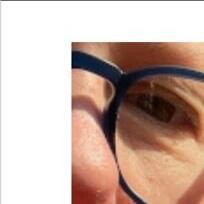
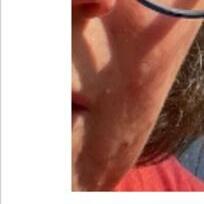

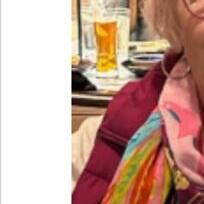



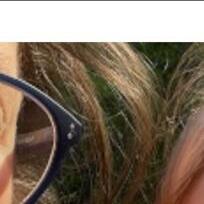
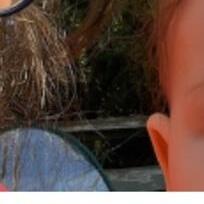
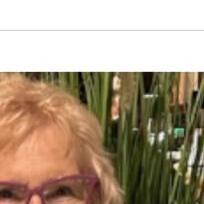
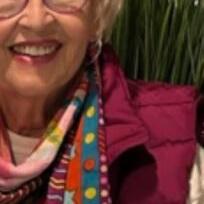










Maureen Adams writes from a basement corner in the Driftless Region of Wisconsin. She seeks beauty, meaning, and utility in small things around her, especially items that may be overlooked or on the very edge of ruin. Her work has appeared in Trouvaille Review, Creative Wisconsin Magazine, Capsule Stories, A Catalog of Small Machines, Moss Piglet, and the WFOP 2024 Poetry Calendar. She was an award winner in the 2022 Muse Prize through Wisconsin Fellowship of Poets.
Jane Barnard reads, and performs excerpts from, The Poet as Pain Relief: A Comic Memoir. It's about surviving aging, depression, and other unexpected silver linings with humor and hard-won grace. The memoir, a work in progress, is her “spiritual punctuation in this earthly sentence,” a woman's journey through tough times with hope and angels...and punchlines.
Jane has a Master’s Degree in English from Marquette University and a Diplome Annuel from the Sorbonne. Her publications include Children of the Quadrilateral, from The Bitter Oleander Press (translation of French Surrealist poet Benjamin Peret), the Driftless Writers anthology, Moss Piglet, and others.
Adam Lee Becker has done a lot of things, and seen a lot of stuff. But he is really looking forward to what he hasn't seen yet. He lives each day with a focus on being present in the moment.
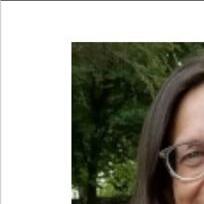




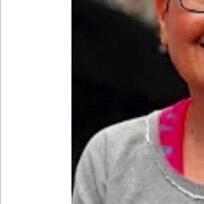

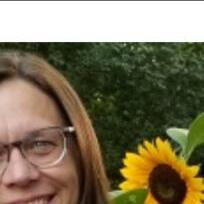
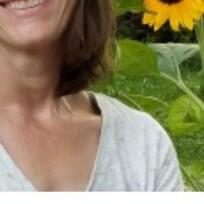
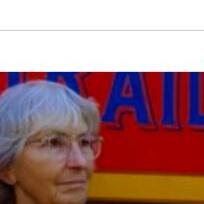











Tanja Birke enjoys writing, playing and playwriting in Viroqua. She is the author of poetry, essays and stage plays. Writing helps her make sense of the world and allows her to sometimes weep and more often chuckle at the absurdities inherent in the human condition.
Sue Blaustein retired from the Milwaukee Health Department in 2016. She published her first book – In the Field, Autobiography of an Inspector – in 2018 and a chapbook, The Beer Line, in 2022. She blogs for Milwaukee’s Ex Fabula, and serves as an interviewer/writer for the Veteran’s Administration’s “My Life My Story” program. She’s been joining Driftless and ALL write-ins for some two years now. Find more information and shop for books at sueblaustein.com.
Debra Bushy's studio is bursting with creative projects! "Stuff" for photography, weaving, painting and writing is overflowing from her cramped quarters.
A favorite medium for the time being is writing. Debra enjoys the inspiration of her human experience, nature and other natural wonders.

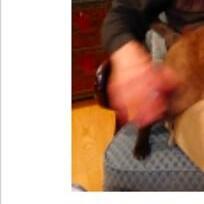

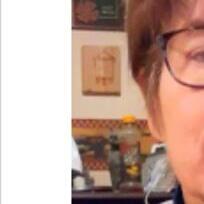

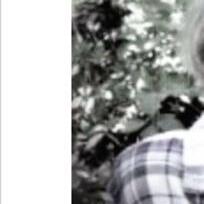


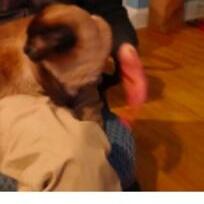



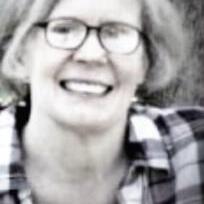








DeWitt Clinton's most recent collection, Hello There, Word Poetry (Cincinnati, 2021), received the 2022 Edna Meudt Poetry Book Award from the Council for Wisconsin Writers. Earlier collections include At the End of the War (Kelsay Books, 2018), and By A Lake Near A Moon: Fishing with the Chinese Masters (Is A Rose Press, 2020). He has a new collection of poems coming out in Fall 2025. His house cat, a Blue Point Siamese, keeps him distracted every day.
Lucinda (Cindy) Guard Crofton is an emerging writer. She has worked in film, television, radio, as a teacher and a farmer. She lives on a farm in rural Wisconsin with her husband of 35 years.
Her work has appeared as a Zoom play at the University of Wisconsin-Richland, and also in A Catalog Of Small Machines and Streetlight Magazine. She also has work forthcoming in Short Reads.
Paula Dáil is an emerita research professor of social welfare and public policy. In addition to being widely published in the social sciences, she is an award-winning non-fiction and fiction writer. Two of her non-fiction books were named Non-fiction Book of the Year by the Council for Wisconsin Writers, and another received a Booklist Starred Review. Her most recent novel, Fearless, received Reader’s Choice, Reader’s Favorite, and Literary Titan awards. Her upcoming novel Red Anemones – Secrets My Mother Never Told, published by Historium Press, is due for release in Spring 2025. She and her award-winning writer husband, and their remarkably articulate dog, all make their home in the Wyoming Valley, near the Wisconsin River. For more, go to paula-dail.com.

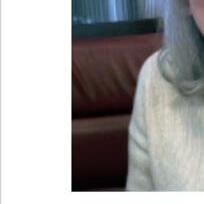

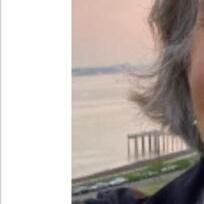

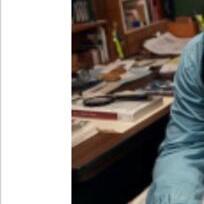


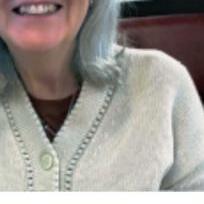
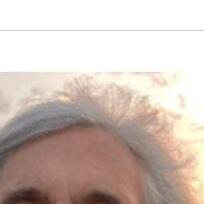
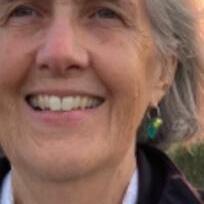

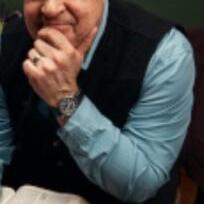








Cynthia Dorfman writes in Maryland and, whenever possible, in Wisconsin. Her work can be found in Ekphrastic Review, the 2025 Wisconsin Poets' Calendar, and on the Viewless Wings podcast. She worked for over 30 years in communications and publishing at the U. S. Department of Education.
Susan Mary Freiss is a mother, grandmother, gardener, teacher, and activist in Madison, Wisconsin. She writes because, in listening to everyday and pervasive silence beyond the cacophony of our culture, she hears many things. When she records what she hears and listens for more, she learns. Her poetry appears in the Amethyst Review and on the Madison Veterans For Peace website.
Richard Hedderman is a Pushcart Prizenominated poet whose latest book of poems is Choosing a Stone (Finishing Line Press.) His work has appeared in dozens of literary journals in the U.S. and abroad. He served as a guest poet at the Library of Congress and performed his writing with the Boston Symphony Orchestra. Formerly Writer-in-Residence at the Milwaukee Public Museum, he lives in Milwaukee where he teaches creative writing at Mount Mary University.



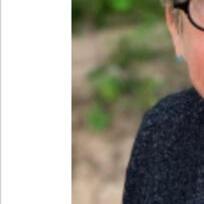




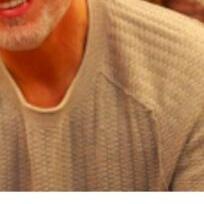
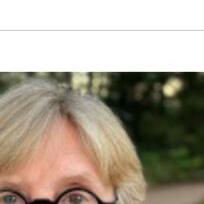











Michael Kalinosky is a writer from Viroqua, Wisconsin. He has been a doctor for the past 21 years and hopes to pursue the writing craft fulltime soon.
Jesse Lee Kercheval is a poet, writer, translator, and visual artist. Her most recent poetry collections are I Want to Tell You (University of Pittsburgh Press, 2023) and her graphic memoir, French Girl (Fieldmouse Press, 2024) named by the Washington Post as one of the Best Graphic Novels of 2024.
Shawn Koval is a community health advocate and writer from the Driftless Area. He enjoys poetry, songwriting, baseball, and all things outdoors. He lives in Madison with his wife Erica, son Miles, and daughter Alma.
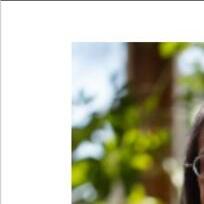


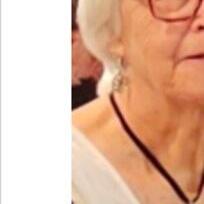

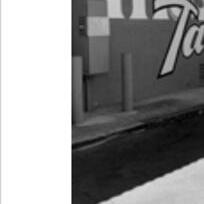

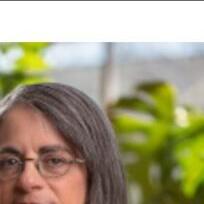


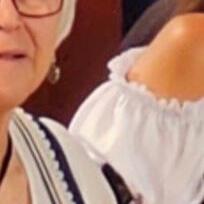

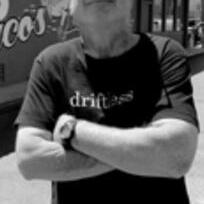








Rebecca S. Krantz lives in Madison, Wisconsin. She has a PhD in Sociology and has worked with nonprofit and community organizations as an executive director, community organizer, consensus process facilitator, somatic coach, and funder. Becca lives in cohousing with her husband and two adult stepchildren, and enjoys making fiber arts and singing. She blogs at Scribing from the Well and is working on her first novel.
Hildegard (Dee) Lambert was born in Vienna, Austria, coming to America in 1955. She has been living in the Driftless Area since 1979. She began writing in her teen years, mainly poetry. Her poems have appeared in the UWRock County antholology A Short Walk on a Long Road, Voices of the River Valley, A Catalog Of Small Machines, and the 2025 WFOP Calendar. She is currently working on a WWII novel and more poetry.
Mark MacAllister compiles and edits A Catalog Of Small Machines. Recently retired after a 40-year career focused on the conservation of wildlands and wildlife, Mark manages to write every day while remaining an active member of his local emergency response team, of a red wolf conservation organization and of the Driftless Writing Center. His poems are published in a variety of journals, and his chapbook, Quiet Men And Their Coyotes, is available from Concrete Wolf Press.
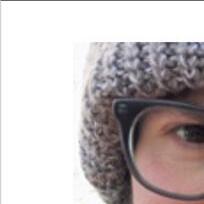

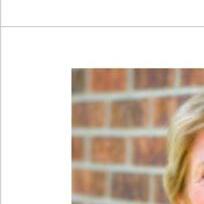


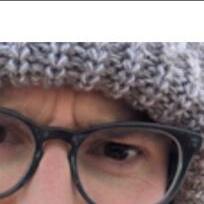

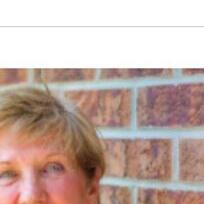







Roman Montemorano is a Reno, Nevadabased poet. Roman was born in Stevens Point, Wisconsin and later lived in Madison for several years. You can find him in the mountains with a notebook, the dog, and his infant son.
Alex Newman is a freelance Toronto area writer and editor. Her children have left home –not for fear of their lives on the road but because life goes on.



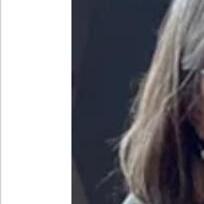


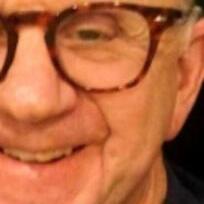
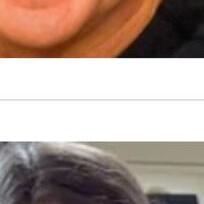
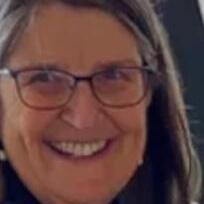






Peter Overholt retired from business in 2015. He began writing then.
Mary Louise Peters calls Wisconsin home; is heart-strung to Rhinelander, La Crosse, and Madison; is a Courage & Renewal® Facilitator, and is a member of WFOP and of an international writing and critique group for women writers.
She worked as an educator/consultant at local, state and national levels. Follow her daily Substack posts, which include poetry she's written, quotes she has collected and her questions, offered in the spirit of Courage & Renewal:
open.substack.com/pub/marypeterswi/
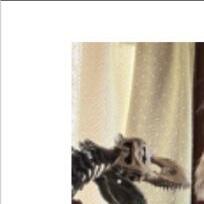
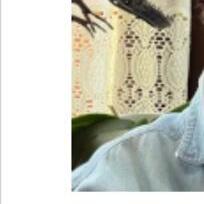

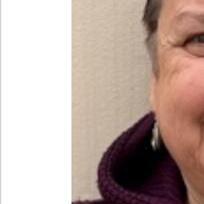

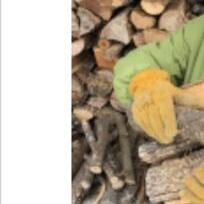

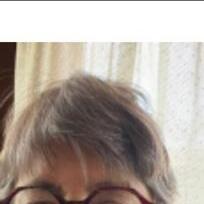
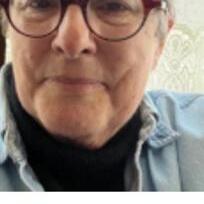

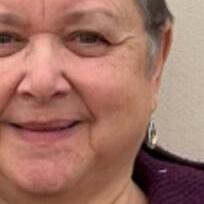

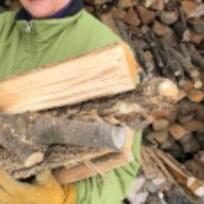








Christine Rundblad lives mostly in Milwaukee and part-time in the Driftless hills of Richland County where she watches her new prairie and grassland restoration start to bloom. All that observation will, she hopes, result in a chapbook soon. She enjoys the fellowship of the South Shore Poets group in Milwaukee, who are her first readers.
Lesley Salas is a bilingual, bicultural CubanAmerican lesbian writer living in Viroqua, WI. Now in her crone years, she writes about clashes of culture, race and gender expectations. Poetry, creative nonfiction and short stories appear when she least expects them. Sometimes she writes them down.
Lynda Schaller lives in the Driftless region/Ho-chunk landscape. Here she grew up on a dairy farm, absorbing elders’ tales and freeranging the woods and fields. She has lived in the rural Gays Mills intentional community of Dancing Waters since its 1982 founding, where she tends gardens, critters and group dynamics, and writes essays and poetry.
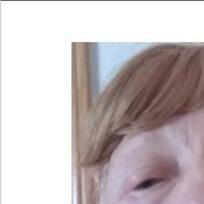
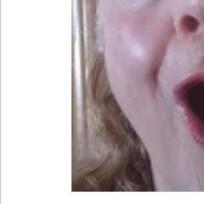



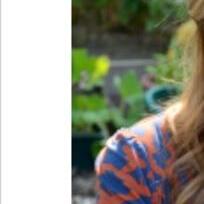






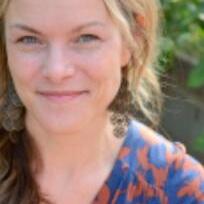








Cosima Sinclair lives in Madison, attends the Driftless Write-In quite often, feeds the animals in her backyard, reads a lot of biographical and autobiographical writings, listens to scientific futurist writings, does chair exercises daily, writes, and cares for/enjoys a forty-acre getaway four hours north. Hopefully she will be painting soon. Or pruning :)
Australian-born Katrin Talbot’s collections Falling Asleep at the Circus and The Devil Orders A Latte are just out from Turning Point Books and Fernwood Press, respectively. The Square Footage of Awe is forthcoming from Kelsay Books. She also has another full-length book, seven chapbooks, two Pushcart nominations and quite a few chickens.
Erin Ruzicka Trondson is a poet, parent, partner, and nonprofit leader. Her chapbook, Nesting, won the third annual Apprentice House Chapbook Competition, and her current manuscript was a finalist for the Lena-Miles Wever Todd Poetry Prize. Recent publications include Midwest Review, So to Speak, Cold Mountain Review, Cheat River Review, About Place Journal, and Connections. She lives in Madison, WI with her family and is the Executive Director of Holy Wisdom Monastery.



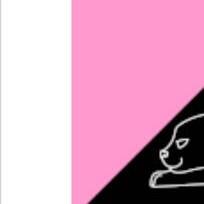

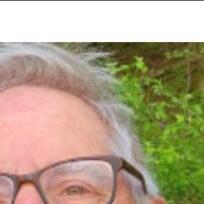









Stephen Weiser (aka Stephen from Wonewoc) is an artist who lives in a state of radical amazement surrounded by woods on a ridge in the Driftless. He enjoys story telling and writing stories about the parallel times he lives in with his husband, Andrew, and dog Yoffie. A longtime resident of the Midwest, his thoughts and heart are never far from southeastern New England and his hometown of Fall River, Massachusetts.
mk zariel {it/its} is a transmasculine neuroqueer poet, theater artist, movement journalist, & insurrectionary anarchist. it is fueled by folk-punk, Emma Goldman, and existential dread. it can be found online, at mkzariel.carrd.co, creating conflictually queer-anarchic spaces, writing columns for Asymptote and the Anarchist Review of Books, & being mildly feral in the great lakes region. it is kinda gay ngl.
